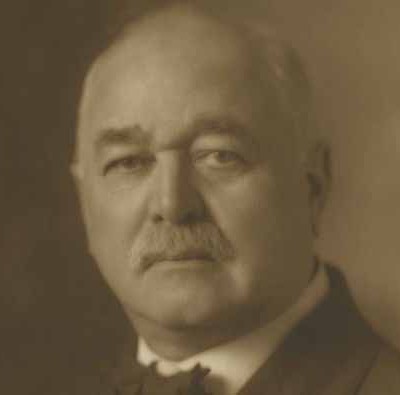
Jacob Gross (1860-1949) immigrated to the United States from Hungary in 1877. He peddled “various merchandise” through the south before opening a general store in Mississippi and later in Alabama. The stores enabled him to bring many relatives to this country, either as his employees or by setting them up in businesses of their own.
Jacob Gross married Rosa Schreiber. In 1900, they moved north, first to Philadelphia, Pa., and then to the new town of South Sharon, Pa., which was later re-named Farrell after U.S. Steel Company President James Farrell. Jacob and Rosa Gross opened a general store. They had seven children, Anna, Esther, Bella, William, Max, Adolph and Miriam.
Max Gross (1893-1983) spent much of his adult life in Youngstown, Ohio, where he was a produce salesman for L. Frank & Company. He was a member of the United Commercial Travelers’ Association and the Illinois Traveling Men’s Association. He was also a lifelong collector of old 78-rpm records. “I doubt if anyone in Youngstown knew the old music the way he does,” Youngstown Vindicator reporter Esther Hamilton wrote of Gross in her “About Town” column in September 1966. “He not only knows the recordings, but the companies that made them, the artists, the arrangers and the year the songs were popular. He likes classical music too, of course, but on the old whistling music that sent your head reeling and touched your heart, Gross has the answers.”
Miriam Gross (1903-1989) attended local schools in the South Sharon area and was active in the local Buhl Club, where she bowled and played basketball and tennis. She graduated from Sharon High School in 1922 and two years later applied for a clerk position with the local Reznor Drug Company. The owner was a young Romanian immigrant named Phillip Ellovich (1898-1986). On one of their first dates, they went to Youngstown to see the famed Russian ballerina Anna Pavlova. Miriam and Phillip Ellovich married later that year. They had three children, Rosa, Joseph and Marcia.
In the years before and during World War II, Miriam Ellovich raised funds to help European Jews trying to escape the Nazis. Those refugees who made it to Sharon occasionally stayed with the Ellovich family until they could find work and other lodging. In the 1950s and 1960s, Miriam Ellovich served several terms as president of the Shenango Valley chapter of Hadassah and the National Council of Jewish Women, Shenango Valley Section. Miriam Ellovich was the president of the Sharon General Hospital Auxiliary and helped create the Elizabeth McMullen Fund to buy books for the Buhl-Henderson Community Library.
Among his earliest memories, Adolph Gross (1909-2002) recalled being rescued by rowboat from his second-story bedroom window when heavy rainfall flooded the Shenango River in 1913. He attended schools in Sharon and, after high school, worked in a steel mill outside Warren, Ohio, until he had saved enough money to enroll in the University of Pennsylvania. With the start of the Great Depression, he was no longer able to afford tuition. He went to live with his sister Esther Gross in Atlantic City, where he made a living playing the saxophone, clarinet and bass in small jazz bands. Throughout his life, he worked in various fields. While living in California in the early 1990s, Gross began painting portraits of local business leaders, such as Steve Wozniak of Apple Computer and William Hewlett and David Packard of Helwett-Packard. To showcase his work, he opened two galleries, the “The Hall of Success” in San Diego and “The Showcase of Success” in San Jose. “It bothers me that business people don’t get the same recognition as sports stars or theatrical folk,” Gross told a newspaper reporter in 1994.